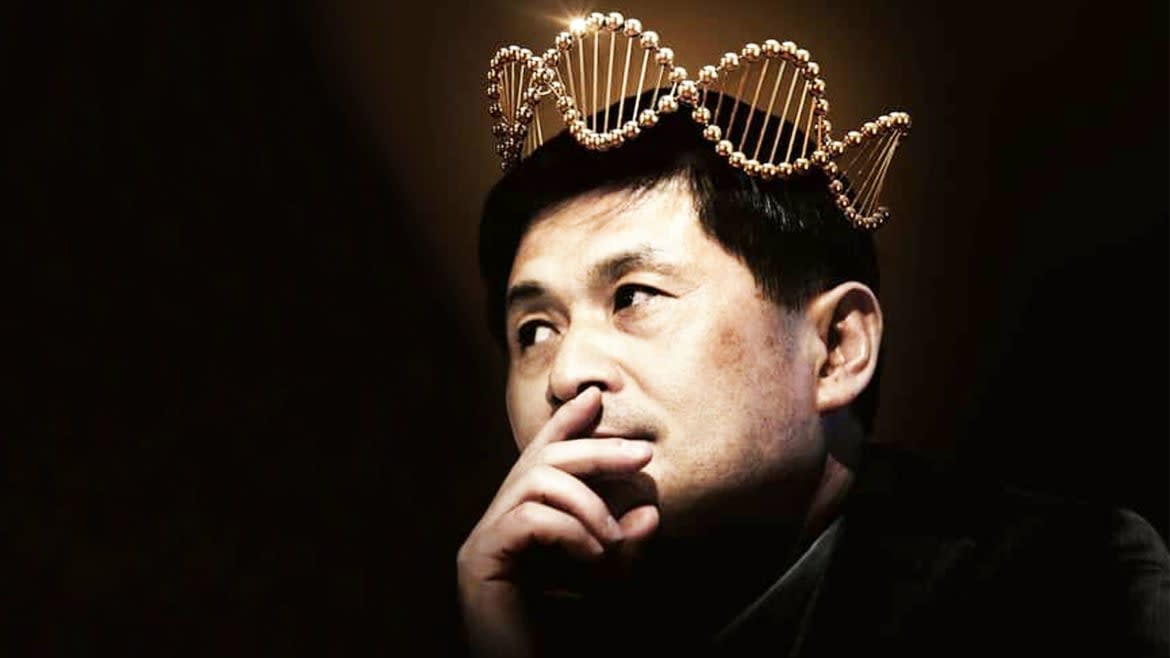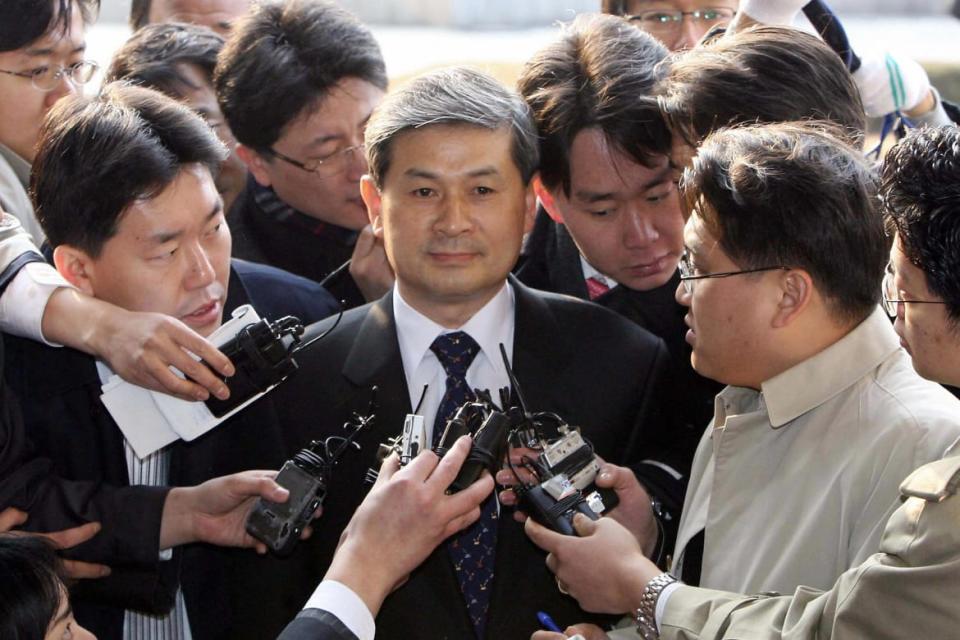‘King of Clones’: The Rise and Fall of Korea’s Most Controversial Scientist

Cloning is, at heart, about the fear of death and the desire to defeat it. Consequently, biologist and researcher Dr. Hwang Woo-suk’s breakthroughs in the field made him not only a celebrated pioneer, but a veritable Christ-like figure, capable of not-so-figuratively bringing animals—and, potentially, people—back to life through the careful use and manipulation of stem cells. Playing God, however, is a delicate and dangerous business, and one that, as proven by King of Clones, requires not only intellectual genius, but a level of unimpeachable integrity that Hwang appears to have sorely lacked.
Aditya Thayi’s feature-length Netflix documentary (available now) is a primer on the rise and fall of Hwang, a former superstar who currently plies his genetics trade in the United Arab Emirates, cloning camels for the rich and powerful, who covet them for both their attractiveness and their racing prowess. Hwang himself participates throughout the film, providing a tour of his sparkling new facility and showing off his four-legged handiwork, which first made waves in the UAE when he cloned a legendary dark-skinned show camel named Mabrukan. According to Dr. Alex Tinson, the Australian director of research at the UAE’s Presidential Camel Center, Mabrukan was as large as a dinosaur and so striking that he was the first to receive a perfect-10 score at the national competition. Today, the UAE is home to 11 Mabrukans, each of them more or less identical to each other and their predecessor.
This Cloning Breakthrough Could Help Us Save the World’s Endangered Species
While there’s no way to make an exact replica of another creature (apparently, slight differences always exist), Hwang says that his clones are “genetic copies,” and he admits to feeling great pride whenever he witnesses the birth of a new clone. Such astonishment, though, commingles with subtle terror in King of Clones. From the outset, Thayi’s film likens Hwang to Dr. Frankenstein via clips from James Whale’s 1931 monster-movie classic—a comparison that Hwang himself seemingly dismisses, if only because no one has successfully recreated human life yet. That’s not for lack of trying, however, and the promise of doing so is what initially made Hwang a national hero and international scientific titan, replete with awards, support from South Korea’s president, and Time magazine naming him one of 2004’s “People Who Mattered.”
As succinctly explained by Dr. Paul Root Wolpe, NASA’s former head of bioethics, the basic cloning process involves removing the nucleus from an egg and then fertilizing that egg with the nucleus from a body cell (be it a skin, liver, or kidney cell). With a little Frankensteinian zap of electricity, the egg begins to split and becomes an organism that’s a perfect reproduction of the original. It’s resurrection performed in a laboratory by highly inspired and skilled technicians, and Hwang was at the bleeding edge of this turn-of-the-millennium movement, pulling off cloning feats with dogs, pigs, and cows that transformed him into a beloved celebrity in ascendant modern South Korea.

Hwang’s tremendous triumphs were not without controversy, given that many people—both at home and abroad, including in the U.S.—viewed his work as a damnable and hazardous violation of the natural order. Nonetheless, protests weren’t enough to halt the scientific freight train he was driving, especially since the promise of cloning was so world-altering. Stem cells offered hope for curing diseases, for recreating replacement organs (like spare car parts), and for effectively raising the dead. Those suffering from disabilities, debilitating or incurable maladies, and painful loss could all now envision a future in which they and their clans were made whole again. Hwang himself admits, “Grief is the catalyst. It’s where our cloning process really begins.”
King of Clones reinforces that notion by profiling interventional radiologist Dr. Alexander Ruebben, who was so distraught over the passing of his French bulldog Csillo that—like Barbra Streisand—he opted to have the pet cloned. Ruebben talks lovingly about his pooch and shakes off criticisms of his conduct in a manner similar to Hwang, who states, “You can’t ignore a path just because it’s reckless.” That may be true, but it’s not the same as having a license for irresponsible behavior, and Thayi’s film has a variety of talking heads—including science journalist David Cyranoski—who discuss the ethical ramifications of, and debates around, this field of study. Unfortunately, those conversations barely start before they’re cut off, and Hwang is only gently pressed on these key topics, making the doc feel more like an overview than a deep-dive investigation into the implications of his innovations.
Netflix Takes On the Wrenching Story of a Kid’s Strange Illness and a Mom’s Suicide
King of Clones’ second half is dedicated to Hwang’s eventual ruination, courtesy of a 2005 Science journal paper that was outed—thanks in part to whistleblower and former Seoul National University Professor Ryu Young-joon—as fraudulent. The fallout for Hwang was severe, and his public mea culpas did little to restore his tarnished reputation; that’s why he now operates in the UAE. The documentary details his professional demise through a variety of conversations with experts and colleagues, archival video, and animated interludes that resemble comic book panels. It’s a professionally mounted non-fiction package; even the director’s standard-issue aerial drone shots impart an air of ominous import that’s attuned to both Hwang’s disgrace and the possibly perilous impact that cloning might have for individuals, families, communities, and society at large.
Though it never articulates it outright, King of Clones resounds as a plea for more rigorous cloning-research standards, especially considering that the Chinese have cloned two monkeys—meaning that, in effect, primates (including humans) are now duplicatable. One need not be Mary Shelley to see the horror in such a development, no matter the therapeutic and surgical upsides; the opportunities for misusing this technology are so obviously vast. Still, a more comprehensive examination would have benefited Thayi’s film, which generally serves as a surface-level portrait about a scientific advancement that could change the world for the better or the worse, and a man who knows how to wield it but can’t necessarily be trusted to do so.
Get the Daily Beast's biggest scoops and scandals delivered right to your inbox. Sign up now.
Stay informed and gain unlimited access to the Daily Beast's unmatched reporting. Subscribe now.

